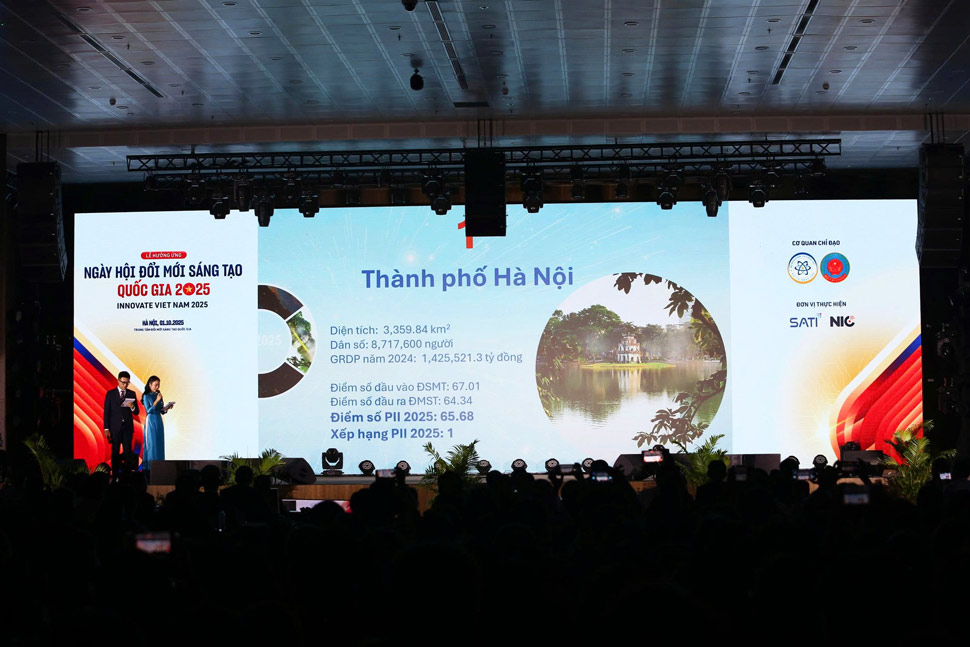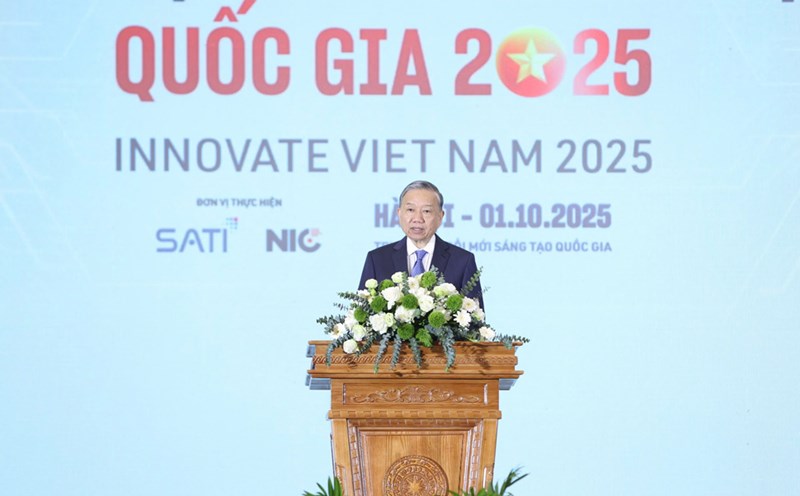
Within the framework of the National Innovation Day 2025 Responding Ceremony, the Ministry of Science and Technology in coordination with the Ministry of Finance has announced the 2025 Local Innovation Index (PII 2025).
According to the results, Hanoi continued to hold the number one position with 65.68 points, marking the third consecutive year leading the rankings. The capital has 18/52 leading indicators nationwide, affirming its leading role in socio-economic development based on science, technology and innovation.
Ho Chi Minh City ranked second with 59.33 points, while leading the country in Infrastructure pillar and having 13/52 leading indicators. This is also the third consecutive year that Ho Chi Minh City has maintained this position.
Third place belongs to Quang Ninh with 58.41 points, reaching the top 3 for the first time after leading 7 indicators in PII 2025. In 2023 and 2024, Quang Ninh will only be in the top 10.
Hai Phong ranked fourth with 58.09 points, standing out with advantages in industry, logistics, seaports and leading the institutional pillar.
Notably, Hue City entered the top 5 for the first time with 49.37 points, thanks to the strength of human capital, research and development. In 2023, Hue ranked; in 2024 it ranked 13th.
According to the Ministry of Science and Technology, the PII index is built on the basis of the methodology and calculation techniques of the Global Innovation Index (GII) developed by the World Intellectual Property Organization (WIPO).
This index will be officially applied nationwide from 2023, and will be assessed by WIPO to meet international standards for statistics and methodology. Currently, only 4 countries are pioneering in building local innovation indexes, including India, China, Colombia and Vietnam.
According to WIPO General Director Daren Tang, PII has brought an innovative system approach from the national to local levels, helping leaders of provinces and cities clearly identify strengths, weaknesses and development potential. Many localities have considered PII results as a scientific basis for policy making, assigning tasks and implementing solutions to improve innovation capacity. Thereby, promoting sustainable socio-economic development.











